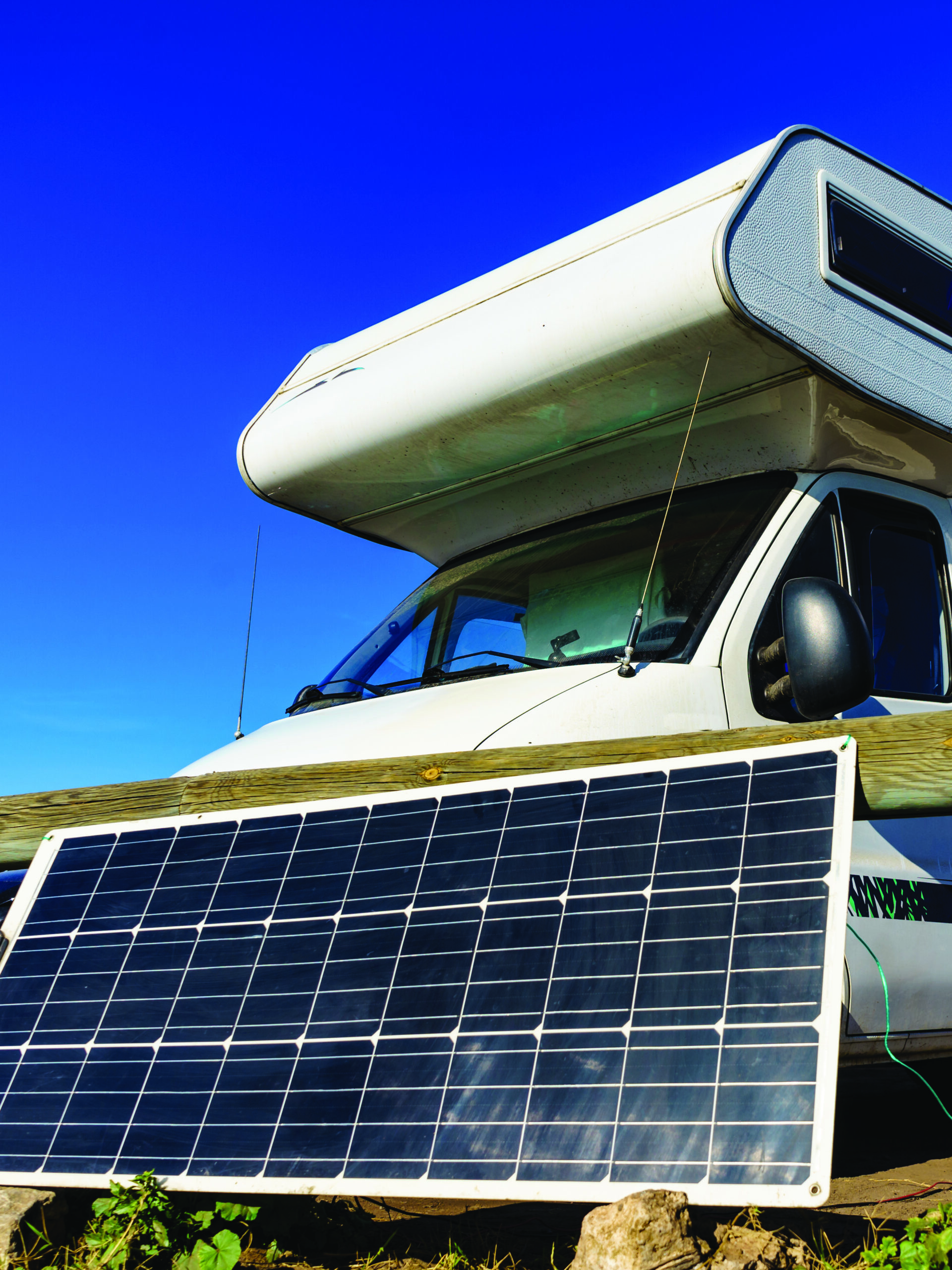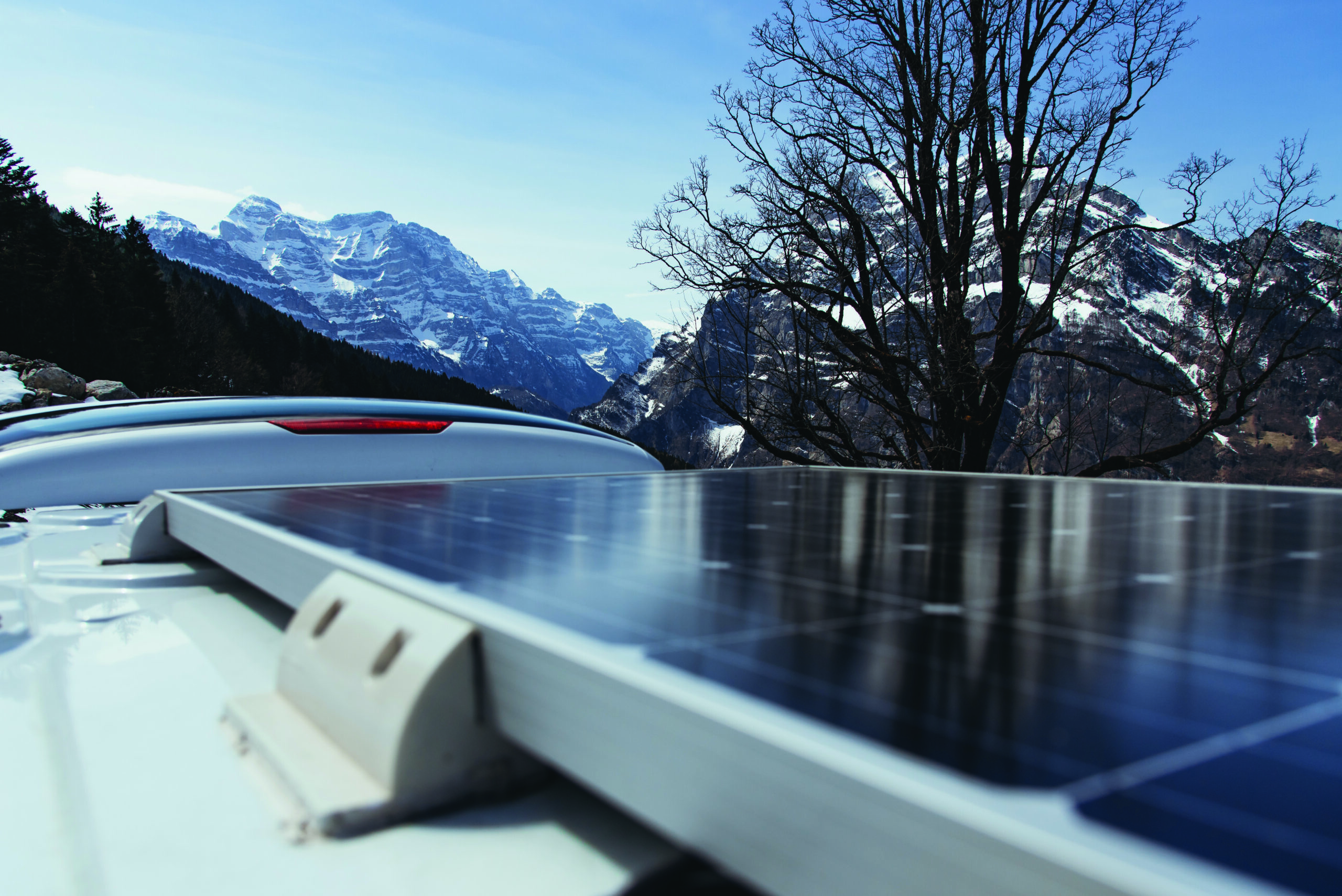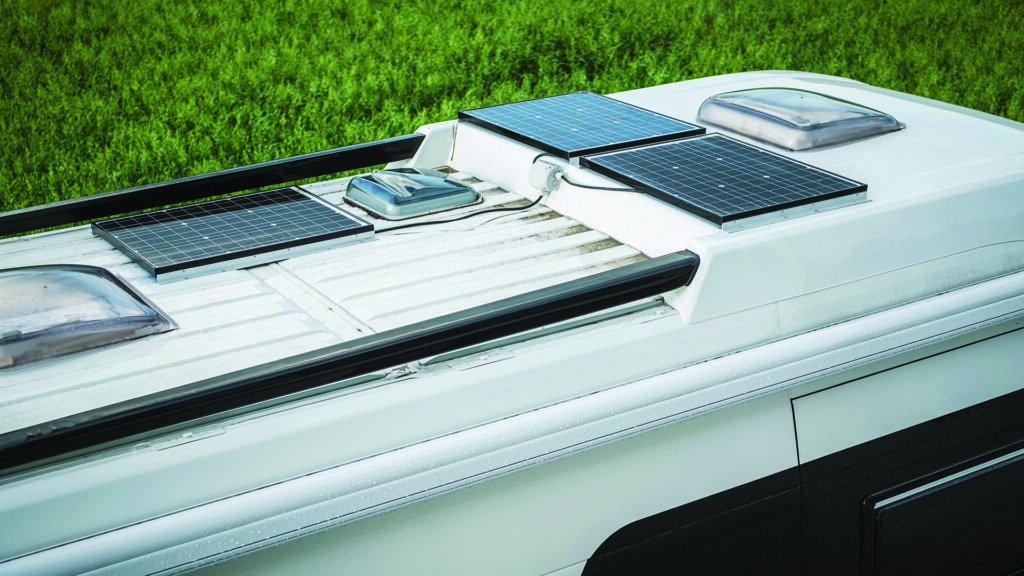How to determine which solar kit is the right fit for you. More and more RVers are going further off-grid as full-service campsites become more scarce. Which means there’s an unprecedented demand for off-grid power. So it makes sense that we’re seeing more and more manufacturers add solar prep to more and more units—and more and more campers putting solar at the top of their wish list. But for folks looking to add solar to their rigs for the first time, this multitude of options can actually make choosing your solar kit less easy, less simple, and less clear. Because the real question is: “How do I figure out which solar solution is right for me?” Well, we’re glad you asked, and we have a few tips on how to find your place in the sun.

An Easy Introduction: Portable Solar Kits
Forgive the pun, but it’s true: Portable solar systems offer first-time users a warm handshake. They’re optimized for size and weight. Panels come in a variety of forms—from small “suitcase” units to larger ones that are stand-alone or hung from the RV. Quite simply, their reduced footprint offers a lot of advantages.
- FLEXIBLE PARKING. With portable systems, you don’t have to park in a location that optimizes the sunlight on rooftop solar panels. Instead, you can park in the shade or in a spot that affords the most scenic views—all while charging your RV batteries with a portable panel placed in the sun.
- OPTIMAL SUNLIGHT. Portable means just that: They’re easy to move … without moving your RV. Panels can be moved throughout the day to maximize exposure to the sun, keeping the best possible charge coming in.
- EASE OF USE. No drilling holes. No mounting your panels on the roof. No running cables through the RV. None of that. You can also move the panel from one RV to another without much hassle should you choose to go for an upgrade.
- NO INSTALLATION COST. Portable panels can be just as expensive as their rooftop counterparts (even more so), but they can also save you cash by removing the need for a costly installation.
- FAST START. RV owners who aren’t ready to go all-in and install a fixed solution can begin reaping the benefits of solar with an entry-level portable solar kit. You’ll learn quickly what you like, dislike, and need from solar.

Raise the Roof: Fixed-Roof Solar Solutions
While portable systems have many positives, they aren’t ideal for every RVer. In some cases, traditional rooftop systems may be a better fit. For RVers looking to streamline their solar setup, fixed-roof solar panels offer other unique advantages.
- STORAGE SAVINGS. Storage can become more challenging as your power requirements (and the number of panels) grow. With space at a premium in RVs, that portable panels must be stowed safely when not used should not be forgotten.
- SIMPLER SETUP. RVers looking to simplify campsite setup may prefer the convenience of fixed-panel rooftop solutions. Portable systems require setup and tear down at each location, adding time and work to every stop.
- MOBILE CHARGING. RVers with fixed solar systems can enjoy charging their batteries anytime it’s light out—even while traveling! Portable systems don’t offer the same convenience and can only be used when you are parked.
- POWER SCALE. Many RVs and trailers can have up to 1,000 watts of solar panels on their roof, but few of us want to set up (and store) an equivalent number of portable panels. Flat out: Fixed systems accommodate more power more easily.
- BETTER SECURITY. Fixed rooftop panels are relatively safe and durable. Portable panels can be dropped, knocked over, or even stolen if left unattended.
Where Lifestyle Meets Sundial
Are you a weekend camper? Portable systems easily meet the requirements of those who only need solar for a few days at a time. Most campers can usually get away with 100 to 200 watts of solar to keep their battery charged. Full-time road warriors who regularly overnight in parking lots or rest areas often choose fixed solar solutions for security. Adventurous RVers who prefer remote locations often opt for portable systems if power requirements aren’t too extreme. Adding 300 or more watts and a robust battery bank would be a great place to start for this type of traveler. Heavy power users who want all the conveniences of home will likely need to opt for a robust rooftop solar installation. Even the best portable systems won’t meet those needs.
However, these campers could benefit from a smaller rooftop system supplemented by a portable panel to boost charging power when required. For power users, 600 or more watts of solar and a substantial battery bank is recommended. The bottom line is that choosing between portable and fixed RV solar systems (or even a hybrid solution) requires some homework. And the first step is understanding how and where you intend to camp current and future power requirements, and—of course— the budget. Because not everyone is ready to invest thousands of dollars, especially with so many one-size-fits-most solar kits available. But no matter what your needs look like, there’s a place in the sun for you.

